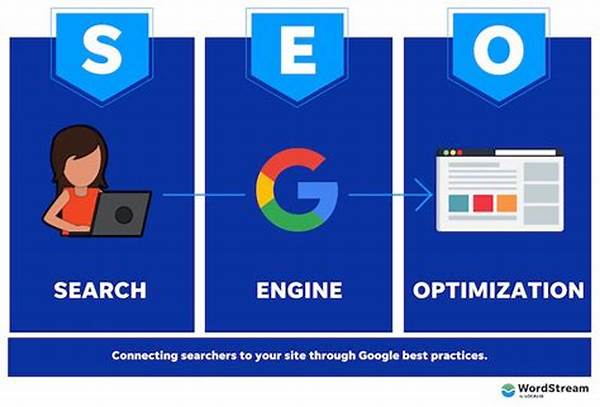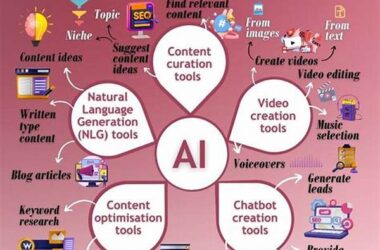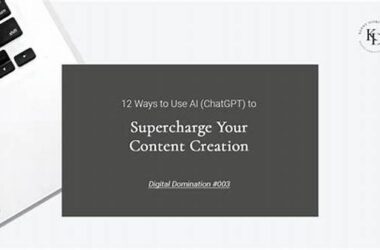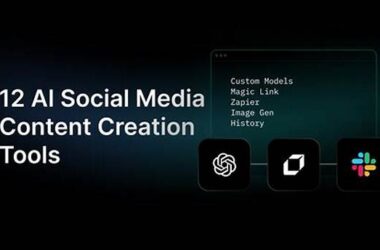In a world where every business strives to get noticed in the vast universe of the internet, SEO strategies play the role of the indispensable compass guiding brands toward visibility. But with the digital landscape continuously evolving, staying ahead of the competition is a daunting task. That’s where the power of Artificial Intelligence (AI) comes into play, revolutionizing the way businesses optimize their SEO strategies. AI acts as a digital grandmaster, making moves that seem both intuitive and extraordinarily analytical. Here’s how AI helps optimize SEO strategies, making it possible for businesses to not only compete but thrive.
Read More : Best Ai Image Tools For E-commerce In 2025
Imagine stepping into a wild jungle, except this one’s digital, and at every turn, there’s a potential customer. The challenge? Ensuring they notice you. Traditional SEO tactics, though essential, often fall short because of their inability to keep pace with ever-changing algorithms and the bulging creation of content. This is where AI technology offers a profound advantage. It processes large data sets, identifies pattern shifts, and adapts strategies to push your website up search engine rankings swiftly and effectively.
This isn’t just about becoming number one on a search list; it’s about understanding intent, personalizing experiences, and building genuine connections. As businesses seek more comprehensive content strategies, AI-powered tools help them produce relevant content that resonates with their audience. AI assists in keyword research, content creation, analysis, and everything in between, ensuring every client’s interaction with your brand is meaningful and engaging.
Yet, with great power comes great responsibility. Integrating AI into SEO strategies also raises important discussions about ethics and the ever-essential human touch in the realm of digital marketing. While AI supports us with data-driven insights, creativity, empathy, and ethical decision-making remain uniquely human domains. Therefore, striking the right balance between AI and human input is the key to a future-ready SEO strategy.
The Role of AI in Content Optimization
The beauty of AI lies in its ability to transform raw data into actionable insights, revolutionizing content creation and optimization. AI analyzes trends, predicts future demands, and suggests topics that captivate and convert. By leveraging AI, marketers and businesses can create content not only for today’s audience but with foresight into tomorrow’s needs. This ensures content remains fresh, relevant, and perfectly aligned with consumer intent, strategically weaving stories that not only attract but also retain audience interest.
—
In this digital era, where information is but a click away, the competition for visibility is fierce. How AI helps optimize SEO strategies goes beyond just understanding algorithms; it embodies predicting user behavior and catering to their needs proactively. Let us dive into the integral structure shaping this narrative of AI and SEO optimization.
To stay at the forefront, mastering SEO has become a prerequisite rather than an option for businesses. At its core, SEO is about understanding the human users and what they’re searching for online. AI steps in as a conduit that interprets this vast array of data and refines it into digestible, actionable insight. It’s this ability to analyze and predict what will work best next that represents AI’s unique selling proposition in SEO.
Beyond keyword stuffing and link building, AI-driven SEO is all about precision and personalization. AI tools can recommend specific keywords based on current trends, ensure content relevance, and even track competitors to provide a comprehensive SEO strategy. The era of hit-or-miss tactics is replaced by smart insights and real-time strategy adjustments, making the campaign more efficient and targeted.
Understanding AI’s Impact on User Experience
A critical metric in SEO is user experience (UX), and AI optimizes this by predicting paths that users are likely to take. This informed journey crafting enhances the UX tremendously, ensuring users find what they are searching for quickly and effortlessly. AI analyzes bounce rates and session times, offering insights on how to improve navigation and site architecture – two key components of SEO that can make or break user engagement.
AI Tools and Their Functions
AI continues to mold the SEO landscape, aiding businesses in climbing the ladder to their online objectives. By doing so, AI not only demystifies the once daunting task of SEO but transforms it into an achievable blueprint. Therefore, companies equipped with AI tools have the competitive edge to create that seamless interface which satisfies and retains audiences, redefining success metrics along the way.
—
To effectively harness “how AI helps optimize SEO strategies,” consider these transformative actions:
Purposeful Creation: AI and SEO
AI’s entry into the realm of SEO signals a paradigm shift in digital marketing strategies. But what’s the objective of merging these two powerhouses? It’s not merely about automating processes, although that is a significant benefit. The ultimate goal is to craft SEO strategies that are as dynamic and responsive as the digital landscape itself.
In a world where the shopper’s journey begins with a click, navigating through thousands of options can be overwhelming. With AI-driven SEO, consumers are gently but effectively guided toward their desired outcomes, thanks to strategically optimized content that anticipates and meets their needs. This anticipatory nature of AI software ensures that brands stay ahead of customer expectations, offering precisely what is sought, often before a consumer even articulates it.
AI’s role transcends mere convenience; it fosters deeper customer relationships by creating personally tailored experiences. Through personalized content delivery, AI ensures that interactions with potential customers feel more like a guided tour rather than a hard sell. By consistently providing value, brands can build loyalty and trust, key components in the competitive digital marketplace.
In essence, the purpose of blending AI with SEO lies in embracing a holistic approach to content marketing. It’s about leveraging technology to enhance the human connection, using insights and analytics to craft strategies that resonate and engage. As AI technology advances, its application in SEO strategies will undoubtedly continue to evolve, offering unprecedented opportunities for business growth and innovation.



